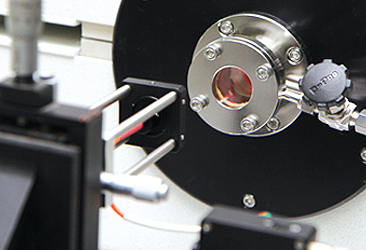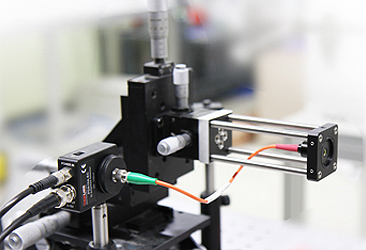R&D in Three Key Areas
In fulfilling its commitment to enhancing the technological competitiveness of SMEs and contributing to the growth of Korea's manufacturing industries, KITECH focuses on three key research areas: Intelligent manufacturing & materials technology, Human-centric manufacturing technology, and Sustainable development technology. KITECH strives to strengthen the fundamentals of Korean industries by carrying out demand-oriented R&D and application activities and securing original technologies for the future.
Intelligent manufacturing & materials technology
Human-centric manufacturing technology
Sustainable development technology
Sustainable development technology
Sustainable development technology supports the sustainable growth of manufacturing industry by developing an energy-efficient and environmentally friendly production system. KITECH's research groups are constantly striving to transform industrial energy and production systems at manufacturing sites through the development of zero emission and green conversion technologies based on energy production, utilization and eco-friendly resource circulation.
Major research achievements
New catalyst technology that enables high-yield manufacturing of FDCA
Highlights
Developed a new high-yield catalyst technology that can replace PET with biomass-based furandicarboxylic acid (FDCA)
Developed a new and safe technology for the oxidization process by injecting air instead of potentially explosive pure oxygen
Developed a new catalyst (Ru/MnCo2O4)thatspeedsupreactions
Benefits
The shortened manufacturing process is expected to double the manufacturing yield of FDCA while cutting down on costs and time
This technology is eco-friendly, as it uses water instead of organic solvents, such as acetic acid, as a reacting solvent
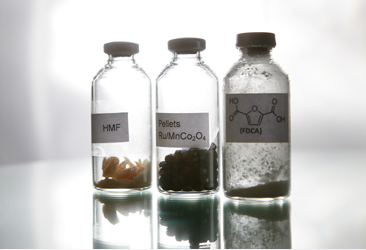
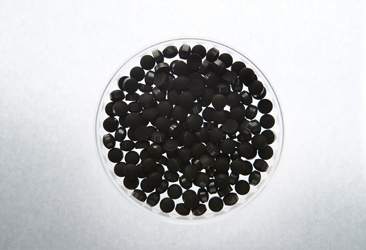
Denitrification-based air purifying catalyst manufacturing technology
Highlights
Developed a selective catalyst reduction (SCR) technology for a denitrification catalyst that enables selective removal of nitrogen oxide
Among the major components of SCR, vanadium and tungsten are reduced to nano-sized particles and are dispersed evenly to enhance their specific surface areas so as to reduce manufacturing costs
Benefits
Expected to reduce import costs by import substitution and securing market competitiveness
Expected to reduce the need for rare metals (vanadium and tungsten) by more than 50%
Expected to maintain 90% of denitrification efficiency at high and low temperatures and to reduce the NO conversion rate

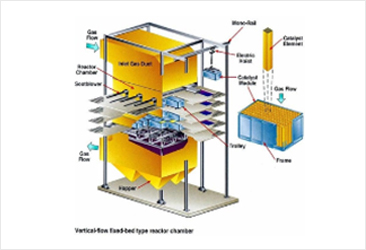
Real-time TDLAS system for analyzing concentration and temperature distribution in combustion systems
Highlights
Developed tunable diode laser absorption spectroscopy (TDLAS) or a real-time high-precision optical measurement system for smart and active control of combustion systems based on concentration and temperature distribution
Achieved a reduction in fuel and particulate matter and greenhouse gas emissions with the automated control of combustion systems that work based on the concentration and temperature information of a combustion gas
Benefits
Expected to bring fuel savings of approximately 1.17 million tons/year (KRW 37 billion/year), greenhouse gas (CO2) reduction of 700 million tons/year, and NO reduction of 30-50% (in the power generation sector alone)
Upon completion of development, the technology is expected to take 50% of the Korean market and 5% of the overseas market (worth approximately KRW 25 billion)
Demonstrations at thermal power plants are underway in partnership with Korea Electric Power Corporation (KEPCO)
